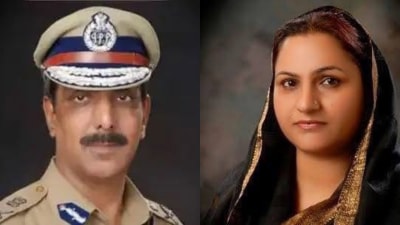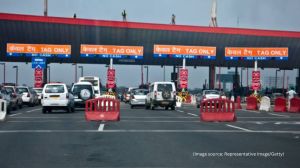Delhi must respond to Dhaka concession on Yangon gas
India is eager to get import energy through Bangladesh. But will New Delhi give economic concessions in return? That’s the big question...

India is eager to get import energy through Bangladesh. But will New Delhi give economic concessions in return? That’s the big question PM Manmohan Singh will have to answer as he heads for Dhaka early next month.
On its part, Bangladesh has agreed to let a natural gas pipeline—from Myanmar to India—run through its territory. Overcoming entrenched political inhibitions on providing transit facilities to New Delhi, the Khalida Zia government has taken this huge step forward at a meeting of petroleum ministers from India, Bangladesh and Myanmar in Yangon last week. A few days earlier, Dhaka had also agreed to give double entry visas for Indians in North-East who want to travel to Kolkata through Bangladesh by road.
Together the two decisions represent a major demonstration of good faith on the part of Dhaka and signal that it might be ready to end the recent frustrating phase in bilateral relations.
In return for letting gas from Myanmar and Indian N-E to reach Kolkata through Bangla territory, Dhaka wants India to address three major economic demands.
The first is the creation of a transport corridor in the small stretch of Indian territory, about 50 km across, that lies between Bangladesh on the one hand and Nepal and Bhutan on the other.
Second, Dhaka wants transmission of cheap electricity from Nepal and Bhutan to Bangladesh through Indian territory. It also wants New Delhi to address the massive trade imbalance in favour of India.
Petroleum Minister Mani Shankar Aiyar made all the right noises about India’s readiness to consider Dhaka’s proposals. But will India deliver?
Dhaka is not impressed with Aiyar’s triumphalism at the conclusion last week of the trilateral agreement on the pipeline project. Dhaka has apparently made it clear that without a bilateral agreement with New Delhi on its economic demands, there would be no trilateral project that seems so attractive.
In putting pre-conditions for the pipeline project, Dhaka is only mimicking India’s stand on the pipeline project involving Pakistan and Iran. India is insisting on transit rights to trade with Afghanistan and Central Asia through Pakistani territory in return for agreeing to buy gas through the pipeline.
India already has transit facilities in place for Bangladesh and Nepal at Phulbari in northern West Bengal. India, however, tends to take away with one hand what it gives with the other. That the transit facilities at Phulbari are primitive is a minor point. The reality is they hinder rather than facilitate transit trade. India could grudgingly negotiate the transit proposal from Dhaka. Or Singh could quickly agree to put in place world-class trade facilities that could help link India, Bangladesh, Nepal and Bhutan.
Similarly, transmission of electricity from Nepal and Bhutan to Bangladesh could be an important first step towards the integration of electricity grids of the four nations.
Redressing Indo-Bangla trade deficit will take time. But if Singh is serious about improving relations, he should be able to come up with innovative ideas on facilitating Bangla exports to India.
Promises made in the past about giving better access to Bangla goods have not been kept.
Dhaka’s proposals are less about bilateral quid pro quo. They are, in fact, a political test for India’s commitment to regional economic integration. It is about time Delhi brought its actions in line with its rhetoric.





- 01
- 02
- 03
- 04
- 05


























